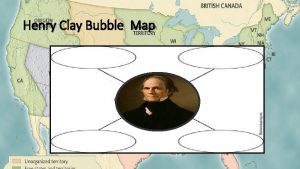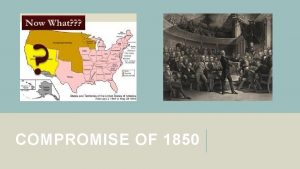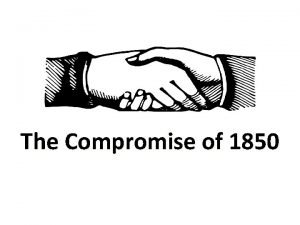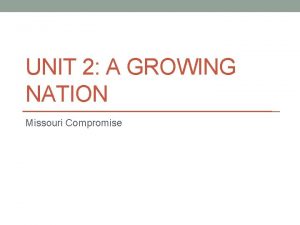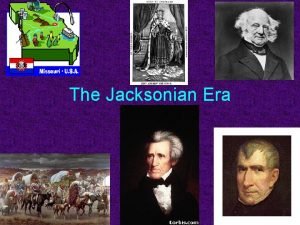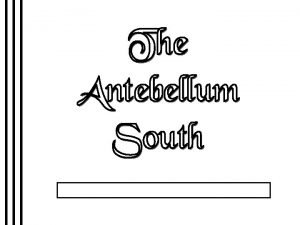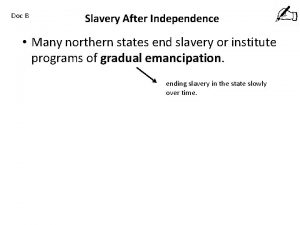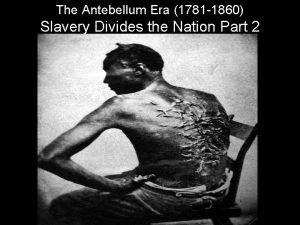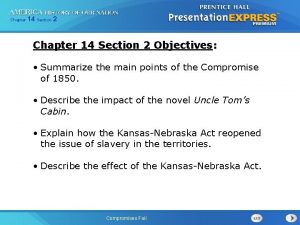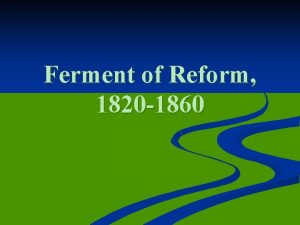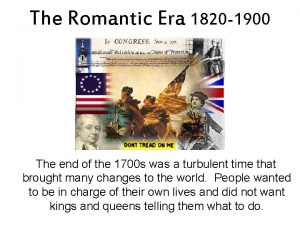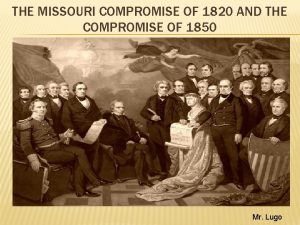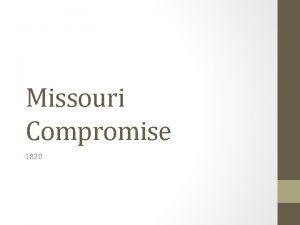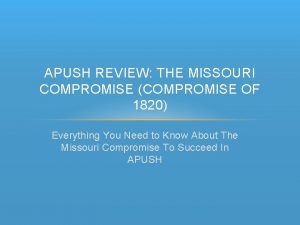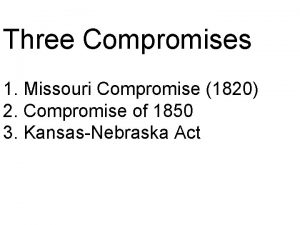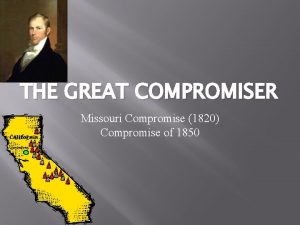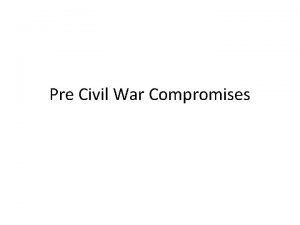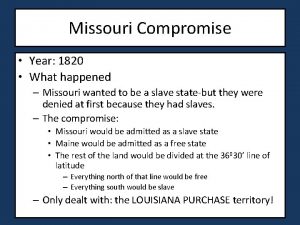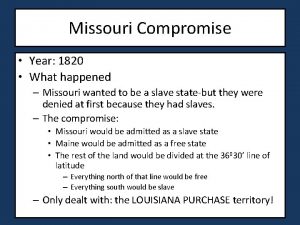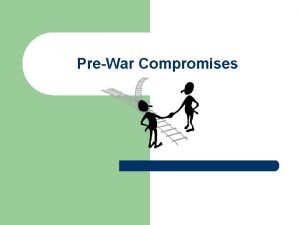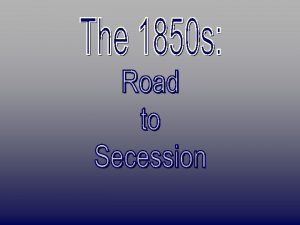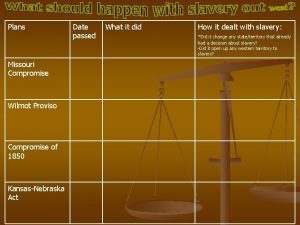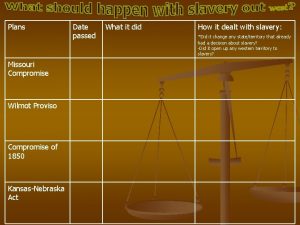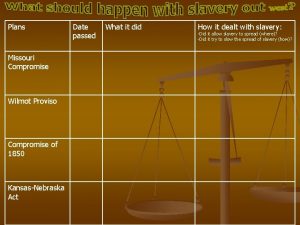Expansion and Compromise of 1850 Missouri Compromise 1820

















- Slides: 17

Expansion and Compromise of 1850

Missouri Compromise (1820)

Missouri Compromise • Temporarily solved the issue of new states created from the Louisiana Purchase (slave/free). • Tried to maintain the balance in Congress between North & South by allowing slavery in Missouri & creating the free state of Maine. Henry Clay, • 36’ 30 applied to Louisiana Territory – example of sectionalism

Mexican War • Treaty of Guadalupe Hidalgo-1848 • Gadsden Purchase-1853

Wilmot Proviso • August 8, 1846 amendment to a bill in Congress • proposed by Pennsylvania Democrat David Wilmot • Proposed ban to slavery in the Mexican territory • Southerners were angry. They claimed slaves were property and the Constitution protected property; and southerners feared losing balance of power

Compromise of 1850 Henry Clay-”The Great Compromiser”

Clay Compromise Measures Debates Activity • You will be responsible for researching one of the following debaters of the compromise: 1. John C. Calhoun 2. Daniel Webster 3. William Seward • Using your phone, find biographical information on your assigned debater. • Analyze their excerpted debate speech by answering the four questions for your assigned speech. Speeches may be found on the Unit 5 Resource Page at dedwardshistory. weebly. com

John C. Calhoun • 1850 -South Carolina Senator John C. Calhoun opposed Clay’s compromise • Strongly believed in state’s rights over federal power

Daniel Webster • 1850 Massachusetts’ Senator Daniel Webster supported Clay’s compromise • Believed Slavery should not be extended and wanted to preserve the Union

William Seward • 1850 -New York Senator who opposed Clay’s Compromise • Against the Fugitive Slave Act

Stephen Douglas • Illinois Senator Stephen Douglas developed unbundling plan to pass Clay’s compromise


Compromise of 1850 Henry Clay-”The Great Compromiser”

Compromise of 1850

Fugitive Slave Law • Fugitives not allowed trial by jury • Could not testify on their behalf • Slave owner testimony was all that was required to have a slave returned

Fugitive Slave Law • Commissioners charged with enforcing law received $10 if they returned slave; $5 if they freed • Anyone accused of helping a fugitive was subject to $500 fine and/or 6 months in prison Levi Coffin, Quaker abolitionist

Fugitive Slave Law • 9 Northern states passed personal Liberty Laws nullifying parts of the federal law and allowing jury trials for fugitives • Led to increased development of the Underground Railroad • Harriett Tubman was the most famous “conductor”
 Explain the compromise of 1850
Explain the compromise of 1850 Who created the compromise of 1850? *
Who created the compromise of 1850? * Compromise of 1850
Compromise of 1850 Compromise of 1850
Compromise of 1850 Compromise of 1850
Compromise of 1850 Compromise enables maine and missouri
Compromise enables maine and missouri Gibbons v ogden nationalism
Gibbons v ogden nationalism Where did the missouri compromise imaginary line run
Where did the missouri compromise imaginary line run Missouri compromise
Missouri compromise Missouri compromise
Missouri compromise Missouri compromise
Missouri compromise Slavery states map
Slavery states map Missouri compromise
Missouri compromise What undid the missouri compromise
What undid the missouri compromise American reform movements between 1820 and 1860
American reform movements between 1820 and 1860 Characteristic of the romantic period
Characteristic of the romantic period 1820 hairstyles
1820 hairstyles It is an era from 1750-1820
It is an era from 1750-1820
